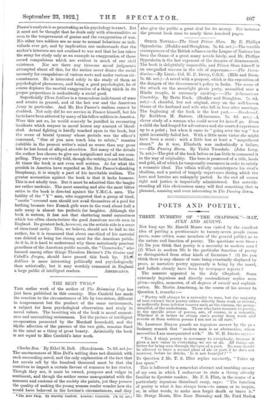Ornru Novms.—The Great Prince Shan. By E. Phillips Oppenheim. (Hodder
and Stoughton. 7s. 6d. net.)—The terrible consequences of the British reliance on the League of Nations has been the theme of a great many novels lately, and Mr. Phillips Oppenheim is the last exponent of the dangers of disarmament. The book is delightfully impossible, and Prince Shan himself is an unequalled success in the role of superman.—The Incen- diaries.—By Lieut.- Col. W. P. Drury, C.B.E. (Mills and Boon. 7s. 6d. net.)—A novel with a purpose, which is the exposition of the dangers of the Government's policy in India. The scene of the attack on the moonlight picnic party, assembled near a Hindu temple, is extremely exciting.—The Subconscious Courtship. By Berta Ruck. (Hodder and Stoughton. 7s. 6d. net.)—A cheerful, but not original, story on the well-known theme of the husband and wife who fall in love after marriage. The beginning of the book is the best part.—Brushwood. By Kathleen M. Barrow. (Heinemann. 7s. 6d. net. )—A clever study of a woman who could never let herself go. From a child she had longed for adventures and she courted experience up to a point ; but when it came to "going over the top" her spirit invariably failed her. With a little more virtue she might have been a saint : with a little less at least a "magnificent sinner." As it was, Elizabeth was undoubtedly a failure. —The Passing Storm. By Violet Tweedale. (John Long. 7s. net.)—The plot of the book before us has little to commend it in the way of originality. The hero is possessed of a title, lands and gold, all of which he temporarily renounces in order to satisfy a romantic ideal. The villain wilfully misinterprets his rival's idealism, and a period of tragedy supervenes during which the hero and heroine are unhappily parted. In the end all comes right and justice is impartially administered. But notwith- standing all this obviousness many will find something that is pleasant, amusing and even interesting in The Passing Storm.


































 Previous page
Previous page